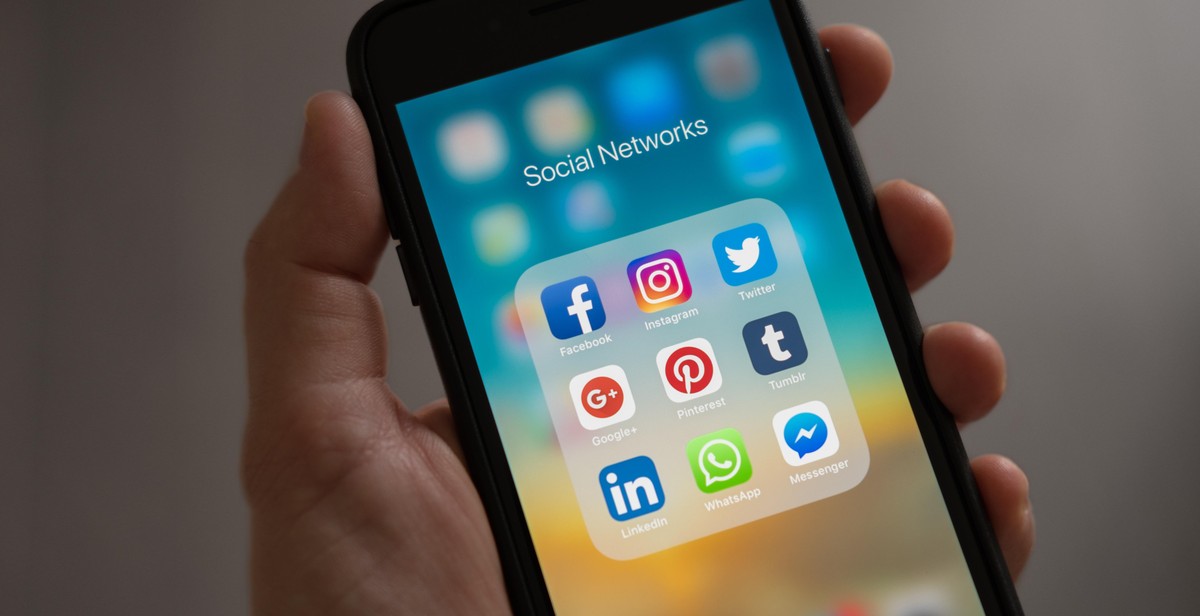Lessons from Failed Relationships: Turning Heartbreak into Growth
Relationships are an essential part of human existence, and they come in various forms. Some relationships are romantic, while others are platonic. However, regardless of the type of relationship, they all have one thing in common – the potential for failure. The end of a relationship can be a painful and challenging experience, leaving those involved feeling lost, hurt, and confused.
But what if we told you that heartbreak could be turned into growth? That failed relationships could serve as a valuable learning experience? In this article, we will explore the lessons that can be learned from failed relationships and how they can be used to improve future relationships.
Why Do Relationships Fail?
Relationships fail for various reasons, including lack of communication, infidelity, unrealistic expectations, and differences in values or goals. However, regardless of the reason, the end of a relationship can be an opportunity for growth and self-reflection.
The Importance of Self-Reflection
Self-reflection is critical in the aftermath of a failed relationship. It allows for the identification of patterns, behaviors, and attitudes that may have contributed to the relationship’s demise. Self-reflection also provides an opportunity for personal growth and development, resulting in healthier future relationships.
- What did I contribute to the relationship’s failure?
- What were my expectations, and were they realistic?
- What can I do differently in future relationships?
These are just some of the questions that can be explored during self-reflection.

The Importance of Reflection
One of the most important steps in turning heartbreak into growth is taking the time to reflect on your past relationships. Reflection allows you to gain insights into your behavior, identify patterns and triggers, and ultimately learn from your mistakes. Here are some ways you can reflect:
Taking Time to Process
After a breakup, it’s important to take some time to process your emotions and thoughts. This can involve journaling, talking to a trusted friend or therapist, or simply taking some alone time to reflect. By allowing yourself to feel and process your emotions, you can gain a better understanding of what went wrong in the relationship and what you can do differently in the future.
Identifying Patterns and Triggers
Reflecting on past relationships can help you identify patterns and triggers that may have contributed to their failure. For example, you may notice that you tend to rush into relationships too quickly, or that you have a tendency to become jealous and possessive. By identifying these patterns and triggers, you can work on changing your behavior and avoiding similar issues in future relationships.
Examining Your Own Behavior
Reflection also allows you to examine your own behavior in the relationship. Were you communicative and honest with your partner, or did you hold back and avoid confrontation? Did you prioritize your own needs over your partner’s, or were you too accommodating? Examining your own behavior can help you understand how your actions may have contributed to the relationship’s failure, and what you can do differently in the future.
Overall, taking the time to reflect on your past relationships is crucial for personal growth and future success in love. By gaining insights into your behavior and identifying patterns and triggers, you can learn from your mistakes and become a better partner in future relationships.

Communication Breakdowns
One of the most common reasons relationships fail is due to communication breakdowns. Recognizing communication issues is the first step in preventing them from ruining your relationship.
Recognizing Communication Issues
Communication issues can manifest in various ways, such as not being able to express yourself clearly, not feeling heard, or misinterpreting what your partner is saying. It is essential to recognize these issues and work on them before they become bigger problems.
Learning to Listen
Listening is a crucial part of communication. It involves not only hearing what your partner is saying but also understanding and empathizing with them. Learning to listen actively can help you avoid misunderstandings and conflicts.
Expressing Yourself Clearly
Expressing yourself clearly is equally important as listening. It involves using clear and concise language and avoiding assumptions or generalizations. Being honest and direct can help you avoid miscommunications and build trust with your partner.
- Use “I” statements instead of “you” statements.
- Avoid blaming or accusing language.
- Be specific and avoid generalizations.
By recognizing communication issues, learning to listen, and expressing yourself clearly, you can prevent communication breakdowns from ruining your relationship. Communication is a vital component of any successful relationship, and by improving it, you can build a stronger, healthier connection with your partner.

Dealing with Conflict
Conflicts are inevitable in relationships, but how you manage them can make or break the relationship. Here are some tips to help you navigate through disagreements:
Managing Disagreements
When disagreements arise, it’s important to communicate effectively. Avoid attacking your partner or becoming defensive. Instead, focus on the issue at hand and express your feelings in a calm and respectful manner. Listen to your partner’s perspective and try to understand where they’re coming from. Remember, it’s not about winning the argument, it’s about finding a solution that works for both of you.
Finding Common Ground
When you’re in a disagreement, it can be helpful to find common ground. Look for areas where you both agree and build from there. This can help to reduce tension and create a more positive atmosphere for resolving the issue.
Compromise
Compromise is key in any relationship. It’s important to be willing to give and take in order to find a solution that works for both parties. This means being open to new ideas and being willing to adjust your own expectations.
Collaboration
When working through a conflict, it’s important to approach it as a team. Collaborate with your partner to find a solution that works for both of you. This means being willing to brainstorm ideas together and being open to feedback.
Remember, conflicts are an opportunity for growth and can lead to a stronger relationship if handled properly.

The Role of Boundaries
Boundaries are an essential component of any healthy relationship. They help to establish a clear understanding of what is and is not acceptable behavior, and they provide a framework for mutual respect and trust. When boundaries are not respected or are not clearly defined, relationships can suffer and eventually fail.
Setting Boundaries
Setting boundaries involves communicating your needs and expectations to your partner in a clear and respectful manner. This can include establishing personal space, defining acceptable behaviors, and outlining consequences for crossing established boundaries. It is important to set boundaries early on in a relationship and to revisit them regularly to ensure they are still relevant and effective.
Respecting Boundaries
Respecting boundaries means acknowledging and honoring your partner’s needs and expectations. It involves listening to their concerns and making an effort to avoid behaviors that may cause discomfort or harm. When boundaries are respected, trust and intimacy can flourish, and relationships can grow stronger.
Reevaluating Boundaries
Reevaluating boundaries is an important step in any relationship, particularly when circumstances change or when issues arise. It involves taking a step back and reassessing the effectiveness of established boundaries and making adjustments as needed. Reevaluating boundaries can help to prevent misunderstandings, build trust, and promote healthy communication.
Ultimately, the role of boundaries in relationships is to promote mutual respect, trust, and understanding. By setting, respecting, and reevaluating boundaries, couples can establish a healthy foundation for a lasting and fulfilling relationship.

Personal Growth and Self-Care
Heartbreak is never easy, but it can be an opportunity for growth and self-discovery. Here are some ways to foster self-love and compassion, pursue personal interests and passions, and prioritize mental and emotional health:
Fostering Self-Love and Compassion
After a failed relationship, it’s easy to fall into a pattern of self-blame and negative self-talk. However, it’s important to remember that you are worthy of love and respect, and that the end of a relationship does not define your worth as a person. Practice self-love and compassion by:
- Speaking kindly to yourself and challenging negative thoughts
- Engaging in self-care activities, such as taking a relaxing bath or treating yourself to a favorite meal
- Surrounding yourself with positive and supportive people who lift you up
Pursuing Personal Interests and Passions
When we’re in a relationship, it’s easy to lose sight of our own interests and hobbies as we focus on our partner’s needs and wants. Use this time to reconnect with yourself by pursuing personal interests and passions. This can include:
- Taking a class or workshop to learn a new skill or hobby
- Traveling to a new destination and exploring on your own
- Trying out a new fitness routine or sport
Prioritizing Mental and Emotional Health
Heartbreak can take a toll on our mental and emotional health, so it’s important to prioritize self-care in this area as well. Some ways to do this include:
- Practicing mindfulness and meditation to reduce stress and anxiety
- Seeking support from a therapist or counselor
- Engaging in activities that bring you joy and boost your mood
| Remember, healing takes time, but by prioritizing personal growth and self-care, you can turn heartbreak into an opportunity for positive change in your life. |

Moving Forward
After experiencing heartbreak, it can be difficult to move forward and trust again. However, it is important to remember that every failed relationship is an opportunity for growth and self-discovery. Here are some steps you can take to turn heartbreak into growth:
Forgiving Yourself and Others
It is important to forgive yourself and your ex-partner for any mistakes that were made in the relationship. Holding onto anger and resentment will only hinder your ability to move on and find happiness. By forgiving yourself and your ex-partner, you can release any negative emotions and move forward with a clear mind.
Letting Go of Resentment
Letting go of resentment is crucial in moving forward from a failed relationship. Holding onto negative emotions will only prevent you from fully healing and opening yourself up to new opportunities. Practice forgiveness and focus on the positive aspects of the relationship, rather than dwelling on the negatives.
Opening Yourself Up to Love Again
Although it may be scary, opening yourself up to love again is an important step in moving forward. Take the time to reflect on what you want and need in a relationship, and be open to new experiences and opportunities. Remember that every relationship is a chance to learn and grow, and that the right person is out there waiting for you.
By forgiving yourself and others, letting go of resentment, and opening yourself up to love again, you can turn heartbreak into growth and move forward with confidence and optimism.
